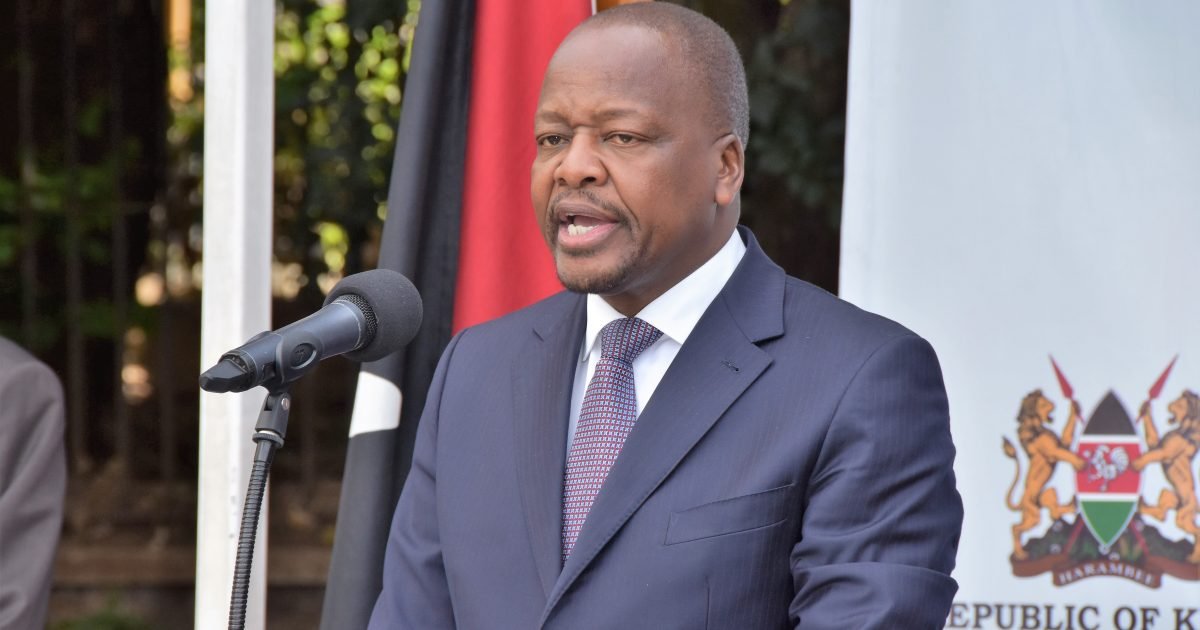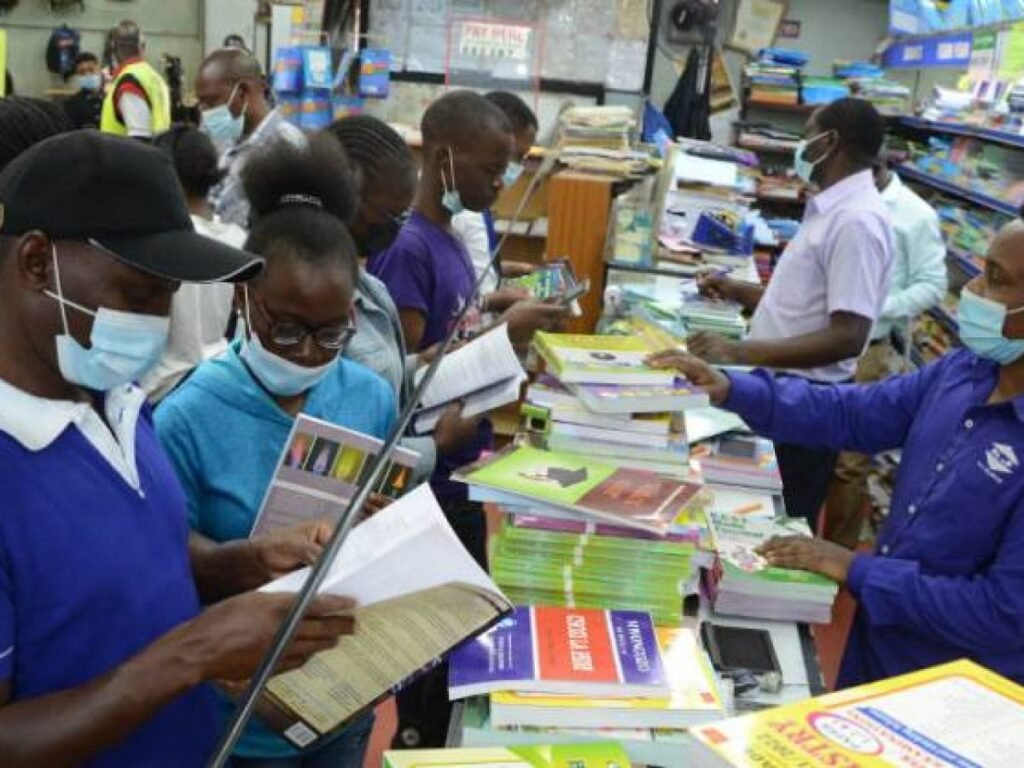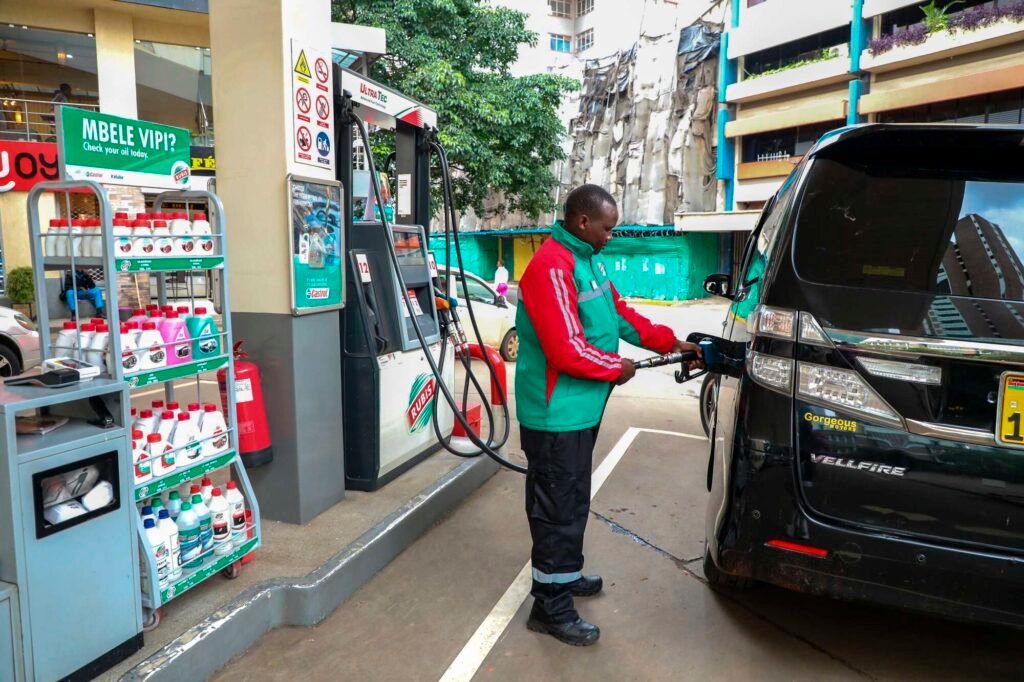General News
Government To Scale Up Health Care

The government intends to invest in more regional and national healthcare systems to facilitate easy and faster access to quality health care at the community level.
Health Cabinet Secretary Mutahi Kagwe said the COVID 19 pandemic had necessitated the shift in focus in the healthcare systems after the spread of the highly infectious disease exposed the fragility of even the most developed and powerful nations.
This, he noted, “has opened our eyes to the opportunities that will exist in a post-pandemic world”.
The CS was speaking at the Kenyatta University Teaching and Referral Hospital during a reception of GRUPPO SAN DONATO officials from Italy who are in Kenya for a series of meetings to explore areas of collaboration with the Government.
CS Kagwe said Kenya is committed to incorporating all stakeholders and every voice to intensify efforts to scale up healthcare.
He specifically noted that the visit by Gruppo San Donato has come at a time when the country has increased momentum towards transforming the available health care systems especially in the area of mental health
“Mental health has significant social and economic implications in terms of population well-being and productivity. It is thus a major public health priority that requires key strategic intervention for the attainment of our country’s social, health and economic targets,” Kagwe said.
The CS further explained that it is sad to note that mental health conditions remained a silent epidemic due to stigma, discrimination, reduced access to treatment and lack of psychosocial support.
This, he added, was compounded by increasing demands and expectations of life, poverty, unemployment, domestic conflicts, competitive lifestyles and efforts to achieve beyond our limits.
The situation, Kagwe noted, is further exacerbated by the adverse mental health impact due to COVID-19 pandemic.
“While a lot of gains have been made in the overall improvement of physical health status, the rising burden of mental ailments threaten to reverse these gains. This calls for strategic positioning of mental health in the country’s agenda and mobilization of resources to address these disparities,” he said
The CS said the visit by Gruppo San Donato follows a Health Investment Forum held in Milan Italy last year, where the ministry met with officials of the company with the aim of seeking ways of increasing investments to improve Kenya’s Healthcare systems.
A Taskforce on Mental Health report titled; Mental Health and Wellbeing; – toward Happiness and National Prosperity had clearly voiced citizens’ mental health concerns and associated daily life challenges and the urgency to address the matter as a public health emergency of an epidemic proportion.
Kenya Mental Health Action Plan 2021-2025 is also a commitment and a clarion call to all stakeholders to prioritize and invest in mental health for the next five years and beyond.
The Action Plan provides a roadmap for National and County Governments and all stakeholders to implement the Mental Health Policy and Taskforce Recommendations through strategic actions with specified targets and indicators.
To achieve the targets set by the plan, Kagwe said it required investments to bridge the huge gaps in the country’s mental health system as a result of many years of low financing of mental health.
“There are compelling reasons for increasing our investment in mental health and the public and private partnership will be an essential ingredient to the successful implementation of this plan. I am therefore pleased to welcome the group officials to Kenya, to further the discussions on increasing Healthcare hubs in Kenya and the region at large,” Kagwe said.
The CS said the officials of Gruppo San Donato, led by their Chairman Kamel Ghribi, were in the country with a view to explore avenues of collaboration in this sector and that on Thursday, they toured Mathare hospital and the proposed site of the new National Neuro Psychiatric Teaching and Referral Centre in Karen.
“From this visit, it is my hope that we shall move quickly towards the signing of an MoU to actualize our elaborate plans,” Kagwe said but noted that even as the conversations with Gruppo San Donato goes on, all stakeholders should join in exploring ways in which we could ‘increase our capacity for response to mental health service delivery challenges’.
Source: Kenya News Agency
General News
IMF Criticizes Kenya’s Fuel Subsidy Re-Introduction, Warns of Budget Distortion

The International Monetary Fund (IMF) has criticized Kenya for re-implementing the fuel subsidy scheme, expressing concerns that the lack of funds to pay oil marketers could distort the budget.
Despite a previous commitment by President William Ruto in 2022 not to subsidize pump prices, the government reintroduced the subsidy, preventing petrol and diesel prices from reaching higher levels in October 2023.
The IMF argues that the subsidy was applied without available funds, as the Treasury has yet to pay oil marketers at least Ksh9 billion ($55.6 million) accumulated from the previous year. President Ruto’s decision to reinstate subsidies goes against conditions set by the IMF for accessing loans.
Petrol and diesel prices, which were Ksh217.36 ($1.34) and Ksh205.47 ($1.27) respectively in Nairobi in October 2023, remained lower than the potential Ksh220.43 ($1.36) and Ksh217.11 ($1.34) due to the subsidy. However, the IMF disapproves of the decision, emphasizing that the removal of the subsidy was a key condition for a 38-month budget support scheme.
The IMF criticizes the prolonged process of forming a taskforce and delays in implementing decisions regarding fuel pricing.
The removal of the subsidy in May of the previous year led to record-high pump prices, crossing the Ksh200-mark later in the year due to a combination of subsidy removal and a VAT increase to 16 percent.
Kenya’s administration, faced with rising fuel costs, chose to reinstate the subsidy, prompting the IMF to raise alarms over the lack of budgeted funds and potential distortions in the country’s financial plans.
The ongoing disagreement highlights the challenges and consequences associated with balancing domestic economic policies and meeting international financial commitments
General News
Parents in Meru County Turn to Second-Hand Books Amid Economic Hardships

As the back-to-school rush season unfolds in Meru County, a growing number of parents are making a strategic choice to purchase second-hand books for their children.
This decision stems from the challenging economic conditions that have prompted families to seek ways to cut costs.
Among these parents is Ms. Prisca Gakii, who revealed that opting for second-hand books allows her to save money, which can then be allocated towards essential expenses like school fees.
She highlighted a practical advantage for Form-One students, emphasizing that using older books can protect them from potential theft, as new books often become targets for less scrupulous classmates.

Ms. Gakii pointed out a notable price difference, citing an example of a new Oxford dictionary priced at almost Sh1,900, compared to a used one available for Sh1400.
She justified her preference for the older but more affordable option, emphasizing that they contain the same content.
Janet Wamuyu, a second-hand books trader, shed light on the lucrative nature of their business during the opening of the first term, which coincides with the peak season.
As learners transition to new grades or classes, there is a heightened demand for various books, including dictionaries, Kamusi, and Golden Bells.

Wamuyu explained that this period, especially when Form-One students are joining school, facilitates easy acquisition of books for new stock.
The trading process involves exchanging books for the next grade or class at a lower rate, providing an economical alternative for parents instead of purchasing an entirely new set of books.
She further noted that their source of new stock comes from parents whose children have completed their studies and no longer require the books.
Despite the success during the peak season, Wamuyu acknowledged the challenges faced during other times of the year when only a few revision books are in demand, highlighting the cyclical nature of the business in Meru County.























